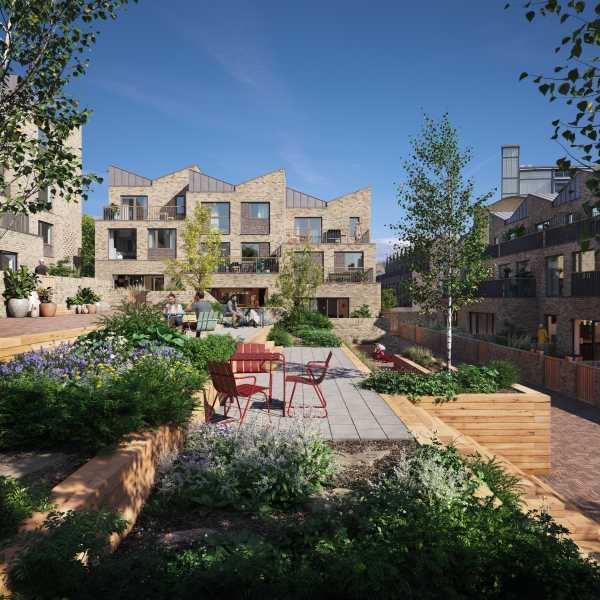A fruitful future for Nottingham’s Sneinton Market
The Fruit Market Development in Nottingham’s Steinton Market, a project by Blueprint Regeneration, has been shortlisted at this year’s Housing Design Awards.
The longest-running awards in the UK, the Housing Design Awards promote excellence and sustainability in home design and seek to identify ideas that deliver higher quality places at pace, whether through a single development or several phases within a larger project. They are the only accolades that are promoted by all five major professional institutions: RICS, RIBA, RTPO, Landscape Institute and Chartered Institute of Architectural Technologists.
One of the reasons the Fruit Market project was shortlisted for these prestigious awards is its contribution to the transformation of the Sneinton Market area of Nottingham, a former fruit and veg wholesale market on the fringe of the city centre.
When traditional British market culture fell into decline after the introduction of supermarkets and shopping centres, Nottingham’s Sneinton Market area fell victim to this change and became a long-term regeneration conundrum for the city. Much of the site was purchased by a developer, whose plans to regenerate the site failed to materialise, causing the Sneinton Market area to become underutilised, and a breeding ground for anti-social behaviour.
For over two decades, the once thriving market location was a talking point for the local community, who couldn’t understand why a site so rich in architecture and local heritage could become so quiet and unappreciated.
But when the developer relinquished its control over the site, Nottingham City Council took over the area and began its regeneration plans to bring the space back to its former glory. In 2012 the council undertook a £6.8m regeneration of the adjacent Sneinton Market Square and a £9m refurbishment and rebuild of the iconic Victoria Leisure Centre.
These two schemes changed the perception of the area and attracted a wide range of visitors back to the location, including market traders and a community of skateboarders, who make use of the nearby skatepark. It has even become a popular site for local festivals. The leisure centre is now regarded to be one of the best swimming pools in the city due to its attractive Scandinavian aesthetic, and the two projects scooped up several accolades for their design, including a RIBA award.
Today, with the addition of a £2.44m grant from the European Regional Development Fund, plus a further donation of £1.4m to transform the area into a hub for creative businesses, the Sneinton Market area has become one of the city’s favourite weekend hangouts, and has been a key component in rebuilding the community in the local area.
But the story doesn’t stop there. After identifying a need for more residential property in Nottingham’s city centre, plans for Blueprint’s Fruit Market development were born. The brand-new low-energy townhouses will provide around 40 new homes; a welcome addition to an area in which almost all recent residential developments have been limited to high density student accommodation.
Designed by architects Letts Wheeler, every home on the Fruit Market development is unique, each centred around a shared garden that has been largely designed by the local community and will be owned, curated and managed by residents. Further spaces have been identified where shared buildings can be placed in the courtyard such as bike sheds, outdoor kitchens or community gazebos.
The townhouses follow a low-energy, design-led ethos and will be completely gas free, with air source heat pumps and underfloor heating at ground level. The insulation used is above UK standards and windows and doors have been selected for their thermal performance, reducing the need for additional heating. The development’s central location to Nottingham city centre gives residents a genuine opportunity to live largely car free.
These new eco homes will introduce high-quality, high-value homes into an area where that demand is not currently being met. Many of the properties in the project’s first phase have already been sold, with future homeowners working with Blueprint before planning was submitted to customise their homes.
The first phase of development will be completed early next year, with phases two and three being submitted for planning later this year. New houses such as those on the Fruit Market development are designed to grow with the homeowner, attracting long-term buyers, which will help retain city centre residents and reduce the chance of people selling up and leaving the area after a few years. In addition, the Fruit Market development, along with the cluster of independent businesses and artisan food producers that came about as a result of the Steinton Market regeneration, will drive further investment into the area and will have a huge long-term impact on the local community.
Find out more about the Fruit Market development here.

